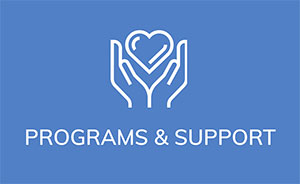Happy New Year! Over the course of a year of monthly meetings, The CLL Society Bloodline will teach the basics needed to understand CLL, starting this month with definitions and diagnosis. It will also provide news, help with acronyms and new vocabulary words, and offer simple fun quizzes. The cycle just restarted and is updated yearly. If you are new to CLL / SLL, expect to learn many new words and acronyms, but it does get easier over time.
MONTHLY QUIZ (same old quiz): Neutrophils are:
- A type of immature white blood cells.
- Important in preventing bruising or bleeding.
- A white blood cell important in fighting infections.
- The blood cells that when they become malignant, cause CLL.
- Blood cells that were first discovered in Switzerland, a neutral country.
Correct Answer is #3. Neutrophils or “neuts” are the most common white blood cell in the body and are critical in fighting infections, especially bacterial. They are also involved in inflammation and are the main cells found in pus. If we have too few neuts, or a low absolute neutrophil count (ANC) from chemotherapy or CLL, we may be at risk for severe infections. They are called neutrophils because their granules stain neutral under the microscope.
NEWS:
CLL Society has successfully worked with the FDA in assuring that the authorization of Evusheld prioritized the immunocompromised. Now we are asking the White House to more quickly, widely, and equitably distribute Evusheld, Paxlovid, and Sotrovimab to the vulnerable. All these medications appear to be active against Omicron. Regen-Cov and BAM/ETE likely have little or no activity against Omicron but do work well against Delta.
THE BASICS: Definitions and Diagnosis
CLL is a slow-growing or “indolent” or “chronic” leukemia/lymphoma of the B-lymphocytes, a subtype of white blood cell and an important part of our immune system. CLL is both a leukemia because it’s found in the blood and a lymphoma because it arises from a lymphocyte. It can be found in the blood, bone marrow and lymph tissue, including the lymph nodes and the spleen and rarely in other organs such as the liver, kidneys, and even the brain and lungs. SLL (small lymphocytic lymphoma) is the same disease that has not significantly spilled over into the blood. CLL / SLL is a cancer of the B cells that are involved in making antibodies and other aspects of our immune system. CLL is diagnosed by finding ≥5000 monoclonal (genetically identical) B lymphocytes in the blood for a duration of at least 3 months. SLL, where there are fewer than 5000 monoclonal B lymphocytes in the blood, is usually diagnosed when an enlarged lymph node is biopsied and the same type of cells that are found in the blood stream with CLL are seen in the biopsied node. The clonal nature of the B lymphocytes should be confirmed by flow cytometry, a test that identifies specific surface markers on the cell, sort of an immune fingerprint. A bone marrow biopsy and imaging such as CT or PET scans are rarely needed to make the diagnosis and should not be done at diagnosis without a good reason.
WORD/ACRONYM OF THE MONTH: Clone
A group of cells that are genetically identical and originate from a single parent cell. Leukemia cells develop from one original abnormal cell. CLL is a clonal cancer, though just to confuse things, one may have several sub-clones of CLL that fight for dominance and respond differently to treatment. That is why combinations of drugs are sometimes used in treatment, to wipe out all the subclones.
SUPPORT GROUP MEMBER SURVEY:
Every year we ask all the members of our support groups to complete a brief confidential survey so that we improve what we are doing and report outcomes to our sponsors. Please complete here. Thanks for your feedback and recommendations.



